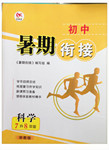题目内容
三.阅读理解,阅读文章后,从每题所给A、B、C、D四个选项中,选出最佳答案。
(共13小题; 每小题2分,满分26分)
February has long been a month of romance. With the sweet smell of roses in the air, romantic films hit cinemas and love stories fill newspapers and magazines.
On the 14th day, it is a custom for a boy to take his girlfriend out to dinner, buy her flowers and chocolates, write poems, sing to her or even spell out her name with rose petals(花瓣)! This is the scene that greets you on Valentine's Day, named after Valentine who was a priest (牧师) in third century Rome. When the emperor(皇帝)decided that single men made better soldiers than those with wives, he didn’t allow marriage.But Valentine continued to perform marriage ceremonies for young lovers in secret. When his actions were discovered, the emperor had him put to death. While in prison, it is said that Valentine fell in love with the daughter of his prison guard. Before his death on 14th Feb 270 DC, he wrote her a letter, which he signed ‘From your Valentine’, an expression_r that is still in use today. Valentine died for what he believed in and so was made a Saint(圣徒), as well as becoming one of history's most romantic figures.
Nowadays, Valentine’s Day is also popular among Chinese young people. Some students are planning to make Valentine’s cards for parents, teachers and friends. Others want to hold parties at which they will exchange small gifts and eat heart-shaped cakes. The idea is to have fun and encourage people to share the spirit of St. Valentine.
36. The Emperor in Rome did not allow marriage in his country because __________.
A. there were few women in his country at that time
B. he thought men without wives could be better soldiers
C. There wasn’t enough food for so many people
D. he wanted to control the birth rate
37. Valentine was put into prison because __________.
A. he killed one of the soldiers B. he stole a lot of food
C. he didn’t obey the emperor’s order D. he didn’t want to be a soldier
38. The last paragraph mainly tells us _________.
A. students in China send cards to their teachers
B. it is a good idea to celebrate Valentine’s Day in China
C. it is interesting to celebrate Valentine’s Day in China
D. Valentine’s Day is also popular in China now
39. The best titles for this passage should be ________.
A. Valentine’s Day B. A Brave Priest
C. Valentine’s Day in China D. A Romantic Man
【小题1】C
【小题2】B
【小题3】D
【小题4】A

 鹰派教辅衔接教材河北教育出版社系列答案
鹰派教辅衔接教材河北教育出版社系列答案 初中暑期衔接系列答案
初中暑期衔接系列答案